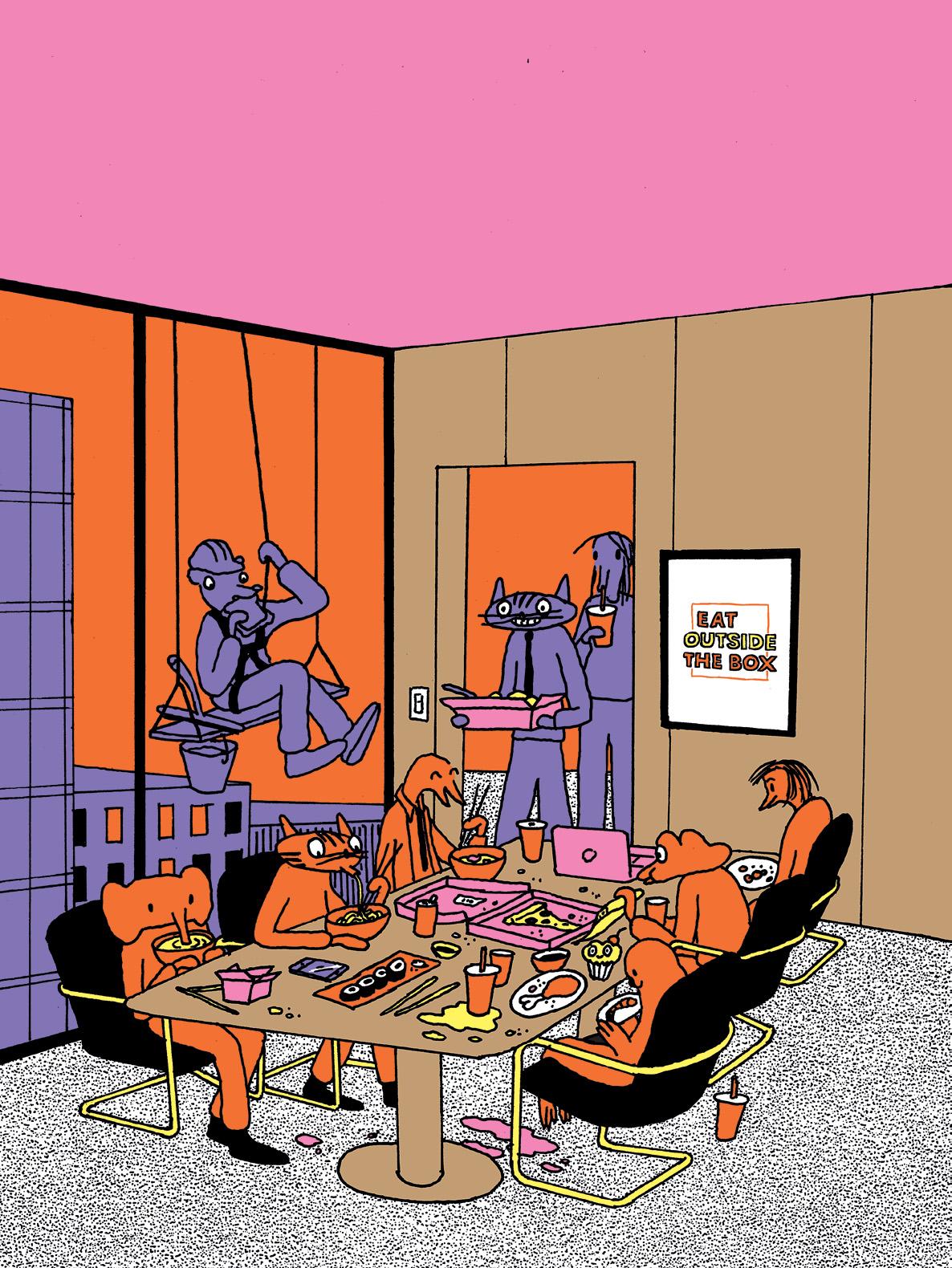
Remember lunch?
It was the meal that wasn’t supposed to matter anymore. Long in decline as the plastic clamshell salad colonized spare desk real estate, the weekday lunch break was an immediate casualty of the shift to remote work at the start of the pandemic. Across office parks and downtowns the world over, the great feedlots of salaried workers sat empty: boozy clubhouses; takeout holes-in-the-wall specializing in pre-grilled panini; food trucks slinging cumin-scented chicken thighs drizzled with white sauce and atop a generous bed of rice.
During the past half-century, the workday lunch has been cast as a wasteful indulgence, the enemy of productivity, especially in America. It ate away at company time, interrupted the flow of work, taxed the wallets of employees and heaped on unnecessary calories, leading to weight gain and the dreaded “lunch coma” that further sapped afternoon output. Before the pandemic, more than 60% of US professionals ate lunch at their desks, more than half ate lunch alone, and over a third rarely, if ever, took a lunch break at all. Sure, some startups invested their VC funding in kale-heavy subsidized spreads, but for most, lunch was an outdated decadence … a meal for wimps, as Gordon Gekko put it icily in Wall Street.
You know what’s for wimps? Sitting at home in your sweatpants, laptop propped up on the kitchen counter, eating questionable hummus on crackers as a Zoom call drones on in the background, in the saddest Tupperware party life can serve up.
Bu hikaye Bloomberg Businessweek US dergisinin December 19, 2022 sayısından alınmıştır.
Start your 7-day Magzter GOLD free trial to access thousands of curated premium stories, and 9,000+ magazines and newspapers.
Already a subscriber ? Giriş Yap
Bu hikaye Bloomberg Businessweek US dergisinin December 19, 2022 sayısından alınmıştır.
Start your 7-day Magzter GOLD free trial to access thousands of curated premium stories, and 9,000+ magazines and newspapers.
Already a subscriber? Giriş Yap

Instagram's Founders Say It's Time for a New Social App
The rise of AI and the fall of Twitter could create opportunities for upstarts

Running in Circles
A subscription running shoe program aims to fight footwear waste

What I Learned Working at a Hawaiien Mega-Resort
Nine wild secrets from the staff at Turtle Bay, who have to manage everyone from haughty honeymooners to go-go-dancing golfers.

How Noma Will Blossom In Kyoto
The best restaurant in the world just began its second pop-up in Japan. Here's what's cooking

The Last-Mover Problem
A startup called Sennder is trying to bring an extremely tech-resistant industry into the age of apps

Tick Tock, TikTok
The US thinks the Chinese-owned social media app is a major national security risk. TikTok is running out of ways to avoid a ban

Cleaner Clothing Dye, Made From Bacteria
A UK company produces colors with less water than conventional methods and no toxic chemicals

Pumping Heat in Hamburg
The German port city plans to store hot water underground and bring it up to heat homes in the winter

Sustainability: Calamari's Climate Edge
Squid's ability to flourish in warmer waters makes it fitting for a diet for the changing environment

New Money, New Problems
In Naples, an influx of wealthy is displacing out-of-towners lower-income workers